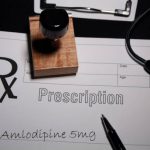The ONE organ responsible for high blood pressure.
Top 6 Frequently Ask Questions About High Blood Pressure

What is high blood pressure?
Blood pressure is the force of the blood pushing against the walls of the arteries when the heart pumps blood. High blood pressure - also known as hypertension - is a condition in which blood flows through the blood vessels (arteries) at a higher pressure than normal.
Blood pressure is measured in double digits. The first, or top, number is the pressure in your blood vessels when your heart beats, called the systolic pressure. The systolic pressure is the higher of these two numbers. The second, or bottom, number measures the force of the blood in your arteries when your heart is relaxed between beats. The lower number is the smaller of the two and is called the diastolic pressure.
Normal pressure is 120/80 or lower. Your blood pressure is considered high (stage 1) if it is 130/80. Stage 2 high blood pressure is 140/90 or higher. If you have a blood pressure reading of 180/110 or higher more than once, see your doctor immediately. A reading this high is considered a "hypertensive crisis".
Readings between 120/80 and 129/89 are considered pre-hypertensive. Prehypertensive people do not have blood pressure as low as it should be, but it is not yet considered high blood pressure.
How do you feel if you have high blood pressure?
Unfortunately, high blood pressure can occur without abnormal symptoms. Moderate or severe headache, anxiety, shortness of breath, nosebleeds, palpitations or a throbbing sensation in the neck are some of the signs of high blood pressure.
What is stroke level blood pressure?
A hypertensive crisis is a severe rise in blood pressure that can lead to a stroke. Extremely high blood pressure - an upper number (systolic pressure) of 180 millimetres of mercury (mm Hg) or higher, or a lower number (diastolic pressure) of 120 mm Hg or higher - can damage blood vessels.
Why is it important to know if you have high blood pressure?
Early detection of high blood pressure is very important. Often referred to as the 'silent killer' because it may have no symptoms, high blood pressure increases the risk of heart disease, heart failure and stroke, among other things. According to the Centers for Disease Control and Prevention, high blood pressure was the leading or contributing cause of more than 360,000 deaths in the United States in 2013.
If you have primary high blood pressure, you will need to control it for the rest of your life.
If you have secondary high blood pressure, your blood pressure is likely to come down after you receive treatment for the medical problem that caused it. If your high blood pressure is caused by medication, switching to another medicine may lower your blood pressure.
What are the tips for preventing high blood pressure?
- Maintain a healthy weight as recommended by your doctor.
- Eat a balanced diet rich in fruit and vegetables.
- Reduce the amount of sodium, or salt, in your diet.
- Get regular physical activity, such as brisk walking, if possible for at least 30 minutes a day, most days of the week.
- Manage stress.
- Moderate your alcohol intake. Men should drink less than two alcoholic drinks a day. Women and underweight men should have no more than one alcoholic drink a day.
- Stop smoking.
- Work with your doctor to manage all prescriptions properly.
- Sudden change in vision
- Changes in breathing
- Sudden changes in breathing
- Faintness or weakness









